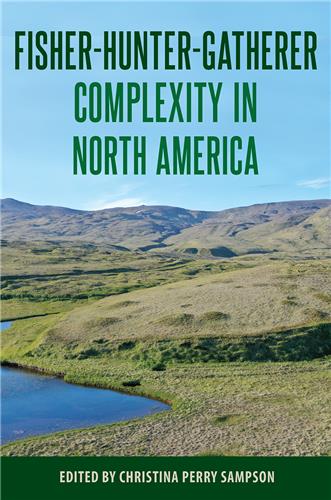The Archaeology of Seafaring in Small-Scale Societies
Negotiating Watery Worlds
Edited by Alberto García-Piquer, Mikael Fauvelle, and Colin Grier
Hardcover: $90.00
Paper: $35.00
Paper: $35.00
Available for pre-order. This book will be available December, 2025
This book will be available in an open access edition thanks to the generous support by the Lund University Library and the Joint Faculties of Humanities and Theology at Lund University.
Exploring how ancient peoples developed seafaring technology and used watercraft to support and transform their societies
“Each chapter presents unique data to address processes of change and how watercraft were instrumental to them. The methods and approaches used by the authors are varied, from agent-based modeling of waterways to ontological studies of canoe beings, investigations of the ratcheting up of political and social complexity by the adoption of watercraft, and bioarchaeological data that shows people do not just shape boats but are also shaped by their boats in return. A must read.”—Ashley Lemke, author of Anthropological Archaeology Underwater
“This volume makes a strong, varied case that boats are socially, symbolically, and materially important. Thought-provoking, it offers a coherent agenda for necessary future research on the topic.”—Christina Perry Sampson, editor of Fisher-Hunter-Gatherer Complexity in North America
The development of seafaring technology throughout history expanded geographical and social horizons—powering human mobility and interaction, structuring social contexts, shaping world views, and even affecting political centralization. This volume examines how watercraft have served as groundbreaking innovations throughout human history, focusing on small-scale societies in saltwater environments.
Using archaeological, historical, and ethnographic evidence, contributors examine settlement patterns in Western Patagonia, whale hunting by Megalithic societies in Brittany, maritime mobility in Baja California, Coast Salish trip lengths, and Inuit connections to boats and the sea in the Eastern Arctic. Themes explored include the technological capacities of watercraft and the humans who propelled them, the role of watercraft in production and consumption of resources, the impacts of widespread travel on social networks, and the phenomenological experience of seafaring. The Archaeology of Seafaring in Small-Scale Societies illuminates the complex interplays that sustained past watery worlds and highlights the necessity of studying the subject with a holistic and globally comparative approach.
Alberto García-Piquer is a postdoctoral scholar at the Autonomous University of Barcelona, Spain. Mikael Fauvelle is associate professor of archaeology and ancient history at Lund University. Fauvelle is coeditor of An Archaeology of Abundance: Reevaluating the Marginality of California’s Islands. Colin Grier is professor of anthropology at Washington State University.
A volume in the series Society and Ecology in Island and Coastal Archaeology, edited by Victor D. Thompson and Scott M. Fitzpatrick
Contributors: Bettina Schulz Paulsson | Peter Jordan | Jordi A. Rivera Prince | Matthew Des Lauriers | Colin Grier | Greer Jarrett | Mikael Fauvelle | Nelson Aguilera | Peter Whitridge | Claudia García-Des Lauriers | Alberto García-Piquer | Raquel Piqué | Adam Rorabaugh | Erin Smith | Victor D. Thompson
No Sample Chapter Available
There are currently no reviews available












